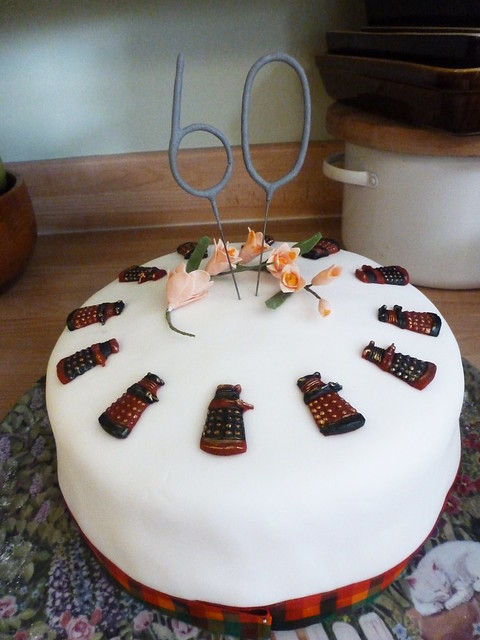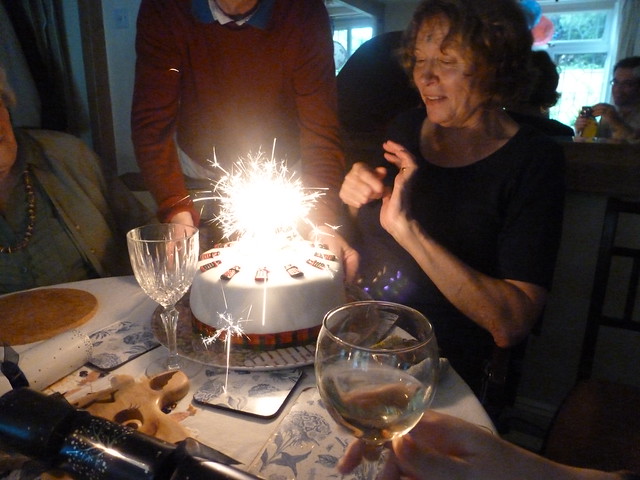I know - riveting! But this is something that, one way or another, effects most people I know under about 45. The effects vary greatly and I know that I am extremely lucky, an unlucky kind of way; there are folks I know who are far more securely stuck in unhappy housing situations or worse, teetering on the precipice of homelessness.
Anyway, here's why I think we're getting housing wrong in the UK:
10. It's too cheap to own a second home and leave it empty.
Second home-ownership is fairly ruinous to rural and coastal communities, pricing local people, on local wages, out of the housing market while flats and houses remain unoccupied most of the year. On the day of the 2011 Census, 29,000 residential properties in Cornwall - one of our poorest counties - stood empty.
It's not immoral for rich people to own second homes - I live between two homes, neither of which I own, but I can see the advantages of having places to live in two very different places, just as I can see the advantage in having a robot butler or more than three pairs of shoes.
But what cannot be right at all is that tax law should make it
cheaper to run a second home than it costs to run the first, through discounted council tax. At the very least, second-home owners should be paying full whack to support any community they own property in, given that their part time presence is unlikely to be an unmitigated force for local good.
On the same score, although MPs represent a small minority of second-home owners, they need to do much better (especially as so many have spoken of what a
luxury it is for a poor person to have a second bedroom so their kids can stay over at the weekend). For one thing, any MP who fiddles their expenses to any extent needs to be fired, just like you would in a regular job. But if the tax-payer is to foot the bill for MP's second homes, this should be funded allowances according to need rather like housing benefit, e.g. a married MP with one child only needs a two bedroom property. If they want something bigger for their own comfort, they really can afford to pay for it themselves.
9. People enjoy living in expensive houses that they couldn't afford to live in if they didn't already own them.
There's house prices which vary, but fundamentally a house is only worth the cost of a similar house. If I owned a house that cost £150K, it wouldn't matter (very much) whether the price rose to £200K or dropped to £100K; selling that house would only generate enough money to buy another similar house in a similar area. I know it gets a little more complicated than that, but
fundamentally.
The trouble is that people
enjoy the fact that they bought their house for £3.50 thirty years ago and suddenly it's worth more money than they could ever have afforded if they didn't already own it - more money than their own kids, if they work in similar jobs, could ever dream of earning. I knew people who charted how much their house was worth during the boom as if this was real material wealth they were accumulating. High-rent prices mean that there are a lot of very wealthy landlords who didn't know a thing about property ten years ago. And the people who have benefited most tend to be of a generation who are also most likely to use their vote. They believe that they worked hard to pay off their mortgage (which they probably did, but everyone does), and if younger people can't afford to buy, that's their look out.
These people do not want to see the price of their houses fall, nor do they want their tenants paying any less rent. Yet elsewhere, when the recession hit, property prices fell and everyone survived in. We should stop seeing a property slump as the disaster to be avoided at all costs - apart from anything else, one of those costs could be a far more massive slump than would have happened otherwise.
8. We're not building enough of the right kind of housing (I)
In the UK, we're building very old-fashioned houses, with an only limited nod to environmental concerns. Outside house-building TV programs, the houses I see being built now look exactly like the houses I watched going up when I was a kid. Where is our architectural imagination? Why aren't we using any of the technology that's developed in the past thirty years on mainstream development?
Part of this is about the environment (and for the most part, environmental materials are not expensive to use and generate work within the UK), but quite obviously, making homes where people will source most of their heat and light from the sun, ground, air or whatever, would lower the cost of living. It seems ridiculous that almost all the houses we're building now will still be predominantly reliant on fossil fuels, when those things are only going to get more and more expensive.
7. We're not building enough of the the right kind of housing (II)
Another problem with new builds is that every single one I've seen is on two storeys. They're also small, not just small rooms, but very narrow walkways, making them difficult to navigate with crutches, let alone a wheelchair.
While I don't want to sound pessimistic about old age and disability, with 1/5 of the population over 60, the number of people who struggle with stairs, at least to some extent, is an increasing minority. But there's nowhere for them to live. I know dozens of disabled people of all ages, who still live in houses with stairs, but remain on one floor or struggle - dangerously, and at detriment to their health - to get up and down stairs.
I understand that building up is much cheaper than building across, but I can't understand why there is no obligation on developers to build a small proportion of houses that are fully accessible, in the same way they're obliged to build a few that pass that vague criteria of
affordability. It's local councils who are going to have to foot the bill for adaptations on these inaccessible houses in the long run.
6. We're not building enough of the right kind of housing (III)
Most of the new building I see is happening on new estates away from existing towns and villages - not necessarily far away, but they require residents to drive to get to a shop or post-office, let alone schools, doctors and pre-existing community centres. They don't have any buildings apart from houses in them, so they don't encourage communal activities and the sort of community that builds up simply by having folk pop into the same shop every now and again, let alone a pub or Church. There are obligations on developers to plan around the prevention of crime, but nothing about encouraging or sustaining community.
By the same token, these
affordable houses, whether owned or rented, are not where the work is. You're going to have to drive to get anywhere and that's going to mean that as a low-income worker, you're going to have much less money in your pocket at the end of the day. Many people cannot live near the places they work, but far fewer can afford to live in the middle of nowhere.
5. We're propping up the property market in the worst possible way.
This government cares that people will stop buying houses and all those middle-class home-owners (they're not all middle class, but the ones that matter are) will see their house prices drop. So how could you help first time buyers? Perhaps providing its own low interest loans for first-time buyers, who've saved up a bit but are struggling to find a mortgage on a small flat or house?
Or you could guarantee a proportion of a loan up to £600,000 where the borrowers have only a 5% deposit. Because you want to help folk who have managed to save £30K to buy a £600K house - that's normal people, ordinary folk with ordinary aspirations, just needing a little leg up. And the tax-payer's money will be perfectly safe! And it's not going to artificially prop up property prices because people wouldn't be able to buy such expensive houses otherwise!
Urgh. I really don't think the government should be in the business of helping people buy property at a time when many people don't have enough to eat. But if they chose to, it should surely be low-waged first-time buyers with modest aspirations.
4. Government is afraid to further regulate, let alone compete with, private landlords.
Rent is way too high. Rents are too high for working people who earn too much to claim benefits, but let's talk about those who can't or don't.
Much emphasis has been placed on how much money in spent on Housing Benefit (now Local Housing Allowance) with few politicians considering why this bill is so big. The sum you get is based on the cost of the smallest accommodation you could live in, in the 30th percentile of the local rental market. So for example, a single person my age where I stay in Surrey would be entitled to £346 a month, based on a room in shared accommodation. Only that's based on the 30th percentile across a region; round here, the going rate for a room is more like £500-600 a month.
Most people are either already renting somewhere or paying a mortgage when their income drops to a level where they need the extra help. Moving can cost many hundreds of pounds - people can't just up and leave (away from where the work is, away from their communities, their kids' schools etc.) because they're unemployed this month. By the time a situation reveals itself to be long-term, there's less money to make a move with. Meanwhile, if you're disabled, you don't get any extra because you need an accessible flat, or room for a wheelchair or other equipment.
The bill to the tax-payer has nothing to do with the choices made by benefit recipients. It's all about landlords - not a bunch of villains necessarily, but folk who will pragmatically charge as much as they can. If your rent goes up, you have to move or pay, and most people can't afford to move.
This is why, in 2013, we're needing
food banks and
Red Cross Parcels. People on low incomes (including some who are not even entitled to benefits) are spending most of their money on keeping a roof over their head and finding there's not enough left to eat.
The idea that cutting benefits will help control the rental market is bullshit. If, as taxpayers, we can't afford to pay the rent of our very poorest people, we need to control what they're allowed to be charged. Or better yet, compete with the landlords:
3. We desperately need more social housing.
Both sets of my grandparents lived in council housing before they went on to buy their own homes. They were working people and there was no shame or stigma. In fact, the council house Kelly grandparents moved into (Granny showed me on Google Streetview) was a central-heated semi-detached palace compared to the tiny terrace houses they both grew up in. They had fought and won a war, they aspired for a better life than their parents' generation and that council house was the first step on that journey.
These days, attitudes towards social housing are completely different. Many people have the idea that if you live in a council flat, you live rent-free (you might do, but only if you're out of work and poor besides). Council housing is highly stigmatised, some people don't want to live near it and many people understand the word
chav as standing for
council-housed and violent.
Meanwhile, folks are desperate for social housing, there are 1.7 million people waiting for social housing in England (about 3.5% of the population), let alone the numbers who need urgent transfers to non-existent smaller housing because of the Bedroom Tax (there's even talk of
demolishing three-bedroom council housing that tenants can no longer afford).
We desperately need more social housing. We need to re-embrace social housing as a necessary facility that anyone might make use of if they need to (much like public transport. Only, you know, more like public transport ought to be.)
2. The Benefit Cap
When they talked about capping benefits to £25K a year a household - once they discounted Disability Living Allowance from the calculation - I thought, "Well that's a stupid crowd-pleaser, but there aren't going to be many families effected by that. £25K is a lot of money."
Only, it's not, when it's fairly easy to pay more than half that much out in rent.
Frances Ryan's coverage of a recent (failed) High Court appeal by a group of women escaping domestic violence demonstrates what a mess we are in. Yes, it
is a bit ridiculous that someone who is out of work should be getting more than an average salary (which, being the mean average, is more than
most salaries).
However, it is even more ridiculous that someone could be having £25K income and still have no money to spend after food, bills and most importantly
rent. And until we sought out that moral scandal, we need to cough up the extra in order to keep children fed and clothed.
1. The Bedroom Tax.
The Bedroom Tax is a policy whereby people in social housing who are perceived as having a spare room must now pay a weekly fine for the privilege. The "spare room" could belong to an autistic girl struggling with puberty who the government thinks should share with her boisterous six year old sister. It might be used by children who only visit on the weekend - its presence being a condition that the parent is allowed to have their kids overnight. It might be used by adult children who are away at university or in the army and do need that place to return to. It may be used by disabled people to store equipment - a wheelchair, hoist etc - or as a bedroom for one half of a couple to retreat to if pain, spasms and other symptoms make it impossible to sleep comfortably together.
Or it might be a spare room where nobody regularly sleeps, but which is part of the flat the occupants have lived in for the last forty years. Part of the home the occupants were placed in
by the council.
One inevitable effect of the Bedroom Tax is to force people to move away from their work and employment prospects, families and communities. But mostly, there are no smaller places to move to, so it's just making poor people poorer.
A third of council tenants are now in rent arrears and many are now becoming homeless.
There are no words for the damage this is causing, both to individuals, families, communities and society as a whole.
The first rule of any government policy relating to housing in any way?
Don't actively increase homelessness.







